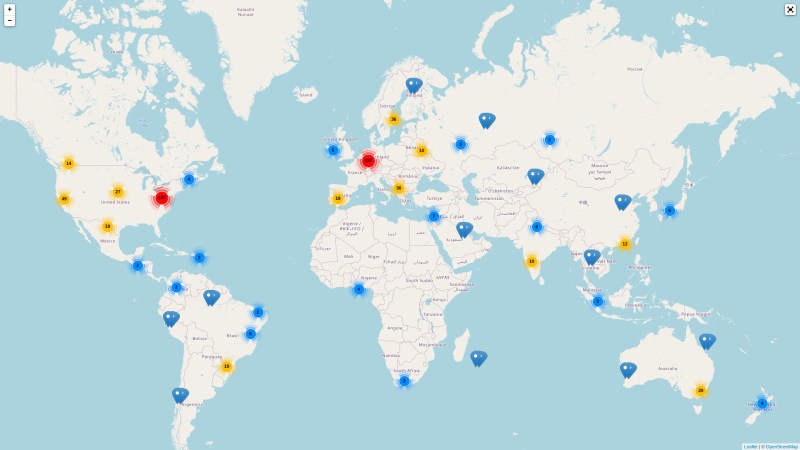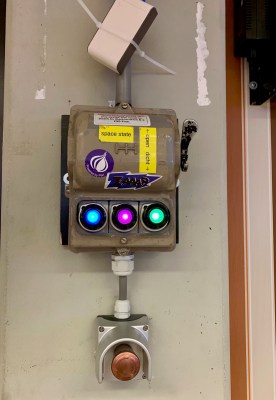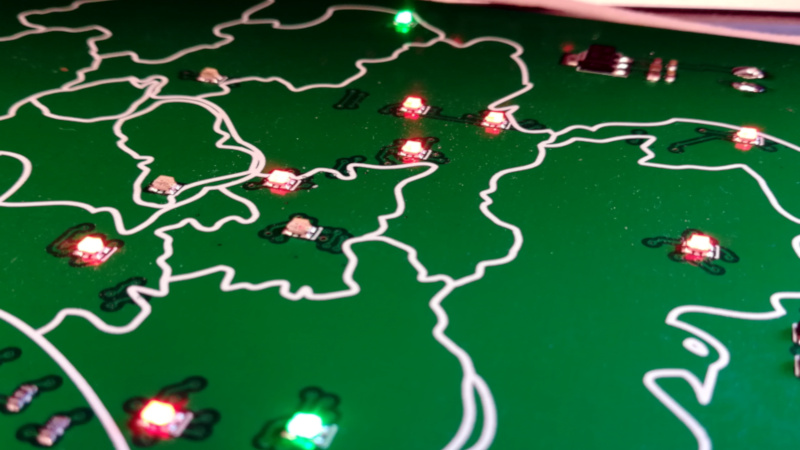Here at Hackaday we’re privileged to be part of a global community of hackers, makers, technology enthusiasts and creative people whose collective works make our daily news feeds such a fascinating read. We encounter you all directly in the physical world rather the virtual one at the many events across the community, or at the various hackerspaces we visit on our travels. But how can we keep track of the world of hackerspaces when there are so many? Maybe SpaceAPI might hold the answer.
Many of the Hackaday staff are intimately involved with hackerspaces, whether as members, directors, or even founders. It’s something I’ve said numerous times as I’ve shown prospective members around Oxford Hackspace or MK Makerspace, that decent sized towns and cities worldwide have hackerspaces, so within reason anywhere you are likely to step out of an airport there will be a bunch of us in a room full of tools and parts somewhere within range.
There’s a Whole World Out There, If Only You Can Find It

With so many hackerspaces in the world, it can be difficult to keep up with them all. It must certainly be a headache for the maintainers of hackerspace directories, with new arrivals as well as spaces sadly closing meaning that a directory can only be as current as its last update. For those of us who follow the world of hackerspaces professionally it’s a struggle to keep on top of them all, and we know there will always be that amazing project posted on a hackerspace website that will pass us by.
An easy way to spot a space that’s active is to look at its website or social media feeds. It’s a pretty decent bet that since my space in Milton Keynes has a recent blog post, it’s an active space and that (pandemic rules permitting) you’ll be able to turn up on an open night and see the place (If you’re visiting MK please do, and take in the National Museum of Computing while you’re here!). But what about a space whose last activity was a year, or 18 months ago? Have they closed, or are they simply more concerned with running a space than updating their web site?
How SpaceAPI Can Help, And Why You Need It In Your Space

Here’s where SpaceAPI can help: by providing a standard JSON interface to the space properties. This holds not only all the static details such as location and contact details, but also the address of the space’s project repository, and most interestingly an indication of whether or not the space is open. The JSON can be a static file, but in many spaces it’s generated by the space itself depending on whether or not there is someone in it.
The first hackerspace to have a SpaceAPI endpoint was RevSpace in the Hague, Netherlands, and if you visit their website you’ll see the current status as a banner on their logo. This and the status reported in their SpaceAPI endpoint is generated by a button in the space that operates their automation systems and turns everything on, the idea being that opening the space up and shutting it down is a single button press. I’ve stood in RevSpace and watched this happen, it’s one of those living-in-the-future moments that I’m sad to admit leaves us behind a little back home in MK. Those of you who read Hackaday regularly may remember our reporting on the badge they created to mark their tenth birthday, it uses SpaceAPI data to great effect in mapping the spaces in the Netherlands as an array of LEDs.
The SpaceAPI maintainers also publish a directory, from which a variety of visualizations and other projects draw their data. As this is being written there are 179 hackerspaces on the list, mostly from Europe but with a few from further afield. If your space isn’t on the list yet, I’d like to ask you to consider creating a SpaceAPI endpoint, and submitting it to the directory. Why should you do this? Discoverability is a key to success for a hackerspace, it means more potential members can find you and those with an interest in hackerspaces such as Hackaday scribes can as well. Finding a space exists and that it is active makes our day, and we think it can yours too.
Header image: RevSpace’s Decennium badge, which uses SpaceAPI data for its visualization.
















Oh look! There’s a hacker space only 4500 km from me lol.
Right, my nearest is 1200km
Perfectly encapsulating why more spaces should do this.
… of course, you could start one :)
The temptation is there.
While I potentially could make a good contributor , my age and declining health mean that I’m not person to start something like this.
no, no I do not, the only “space” near me charged 80$ a week and was 45 min away, welcome to reality
Białystok not apear ;(
(because it is “white 10 ok” city i think.)
For live view of all SPACEAPI check https://mapall.space/ (enable/disable layers if you want to see only spaceapi hackerspaces)